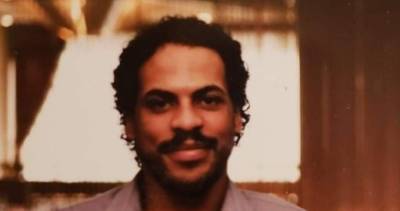Thousands of B.C. nurses call for the province to save lives by decriminalizing drugs
Ending the war on drugs will reduce stigma and help address overdose deaths, reads a declaration issued by the Nurses and Nurse Practitioners of B.C. and the Harm Reduction Nurses Association
Nurses are the unsung heroes of Canada’s health-care system. They know their patients well and often play vital roles communicating their needs and advocating for their care. When nurses speak, we should listen.
Today (August 8), B.C. nurses collectively raised their voice to urge B.C. to stop arresting people for the personal possession of illicit narcotics, including hard drugs like cocaine and heroin.
“[We] call on the B.C. government to take immediate steps to move toward the decriminalization of people who use drugs,” reads a statement issued by the Nurses and Nurse Practitioners of British Columbia (NNPBC), a professional organization with more than 3,800 members, and the Harm Reduction Nurses Association (HRNA), a national organization with members across Canada.
“As nurses who work in B.C. and provide frontline care in the midst of this public health emergency, we see firsthand the impact of criminalization on our clients, on their families, on our practice and our communities,” it continues.
“As nurses, we see decriminalization as an essential step to remove barriers to care and support, reduce stigma and discrimination, improve health and socioeconomic outcomes, and work toward a more just and compassionate society.”
HRNA president Marilou Gagnon told the Straight that the statement was issued in response to B.C.’s overdose crisis but also speaks to issues larger than any one event.
“We want people to feel comfortable asking for help,” she said on the phone from the University of Victoria, where she’s an associate professor. “And right now, criminalization is preventing that from happening.”
“What kind of society do we want to live in?," Gagnon asked. "A society that punishes people for using drugs is one that is really harmful on so many levels.”
Last year, there were 1,535 illicit-drug overdose deaths in B.C., up from 1,493 the previous year. That compares to an annual average of 204 deaths for the years 2001 to 2010.
The provincial response has primarily consisted of harm-reduction measures, including an expansion of supervised-injection services and enhanced access to the overdose-reversal drug naloxone. The nurses’ statement applauds those initiatives but notes, “the absolute numbers of overdose deaths have not changed despite these interventions. This supports the need to look for interventions that address the root causes of this overdose crisis: an unregulated and unsafe drug supply and the criminalization of people who use drugs.”
Gagnon said that a roadmap to de facto decriminalization exists in an April 2019 report that was written by Dr. Bonnie Henry, the provincial health officer of British Columbia.
That document suggests that B.C. use the Police Act to formally instruct police departments and RCMP detachments to deprioritize charging people for possession to a point where federal laws prohibiting drug use are effectively no longer enforced.
Henry maintained this would help reduce stigma associated with drug use, which would encourage people who struggle with an addiction to seek treatment. That, she maintained, would reduce overdose deaths.
Another arm of the B.C. government, the Minister of Public Safety and Solicitor General, immediately rejected the doctor’s recommendations. “Possessing these substances is still illegal under federal law,” Mike Farnworth said.
Gagnon argued that the province’s enforcement of prohibition is contributing to overdose deaths.
“The deaths that we’re seeing are people using alone,” she explained, citing statistics collected by the B.C. Coroners Service. “The number one reason [people use drugs alone] is fear and stigmatizing.
Prime Minister Justin Trudeau has repeatedly said that a Liberal government will not consider dropping criminal penalties for personal possession.
The nurses’ call for decriminalization joins a growing number of stakeholders who argue it’s time for the country to begin a debate on the matter.
They include NDP leader Jagmeet Singh, former B.C. health minister and federal Liberal candidate Terry Lake, former Vancouver mayor Gregor Robertson, Liberal MP Hedy Fry, and former federal health minister Jane Philpott, who recently gave Henry’s plan a warm reception.
“International evidence (esp Switzerland & Portugal) is clear: We need a public health approach to drug policy,” Philpott wrote on social media alongside a link to a Globe and Mail editorial in support of the decriminalization proposal. “More than 10,000 Canadians have died from opioid overdoses since 2016. It's well past time to follow the evidence.”
https://twitter.com/janephilpott/status/1121612081118105602
Top health officials for Canada’s three largest cities—Toronto, Montreal, and Vancouver—have also all stated publicly that they are in favour of ending arrests.
Gagnon described the illegal classification of drugs like heroin as the “number-one barrier” that prevents people addicted to drugs from accessing treatment.
“This is not just a few hundred nurses,” she added. “This is the entire province’s nurses speaking with one voice….This is all of the nurses saying, ‘You need to decriminalize now’.”















Comments